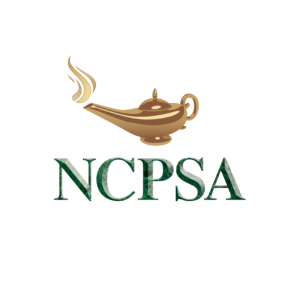SUMMARY
Many schools have policies that dictate how much homework should be assigned based on the assumption that it is beneficial to students. As a general rule, the National Education Association recommends giving students 10 minutes of homework per night multiplied by their grade level; for example, 10 minutes in 1st grade, 20 minutes in 2nd grade, 30 minutes in 3rd grade, and so on.1 However, the research on homework does not provide definitive evidence of its benefits.
The Case For Homework
“A good way to think about homework is the way you think about medications or dietary supplements. If you take too little, they’ll have no effect. If you take too much, they can kill you. If you take the right amount, you’ll get better.”
— Harris Cooper
Harris Cooper, lead author of the most well-known large-scale synthesis of homework research, concludes that homework, when assigned appropriately, has a wide range of positive impacts on students. For children in younger grades, completing daily homework assignments can help them to establish good study habits, develop responsibility, improve their time management skills, and become more independent. In the upper grades, homework has been correlated with academic improvements in grades and test scores.2
The Case Against Homework
“…[A] headline that reads ‘Study finds homework boosts achievement’ can be translated as ‘A relentless regimen of after-school drill-and-skill can raise scores a wee bit on tests of rote learning.’”
— Alfie Kohn
Alfie Kohn, education theorist and author of
The Homework Myth, argues that most of the correlations between homework and achievement are weak or flawed, and asserts that far more evidence suggests that homework is detrimental to students in many ways. The negative impacts of homework include frustration, exhaustion, less time for leisure and enrichment activities, and most important, a loss of interest and engagement in learning.3
NOT ALL HOMEWORK IS CREATED EQUAL
Perhaps the discrepancy within the research can be explained by the lack of consideration for the differences in the type of homework assigned, such as “rote practice” versus “projects about topics of interest,” or whether homework is presented to students as “required” or “optional.” These differences may be what Cooper is referencing when he offers the caveat: “when assigned appropriately.”
Because the research on homework is so varied, occasionally flawed, and in many cases open to interpretation, Clonlara School approaches homework from the student’s perspective, guided by our belief that learning begins with
curiosity and that students will participate purposefully and eagerly in their education when their interests drive the learning process.
“School does not have to mean following a time clock and underlining words in a workbook. Learning how to learn is far superior to learning facts.”
― Pat Montgomery, Clonlara School Founder
HOMEWORK IS A CHOICE AT CLONLARA SCHOOL
Parents often come to Clonlara with stories of feeling overwhelmed by the amount of homework required by their child’s school, seemingly with little or no relevance to their child’s learning. Rather than spending quality time together, these families find themselves stuggling to figure out what has been assigned for the night, or easing the frustrations of a child who does not understand what their teacher has asked them to do.
At Clonlara, we want students to enjoy learning whether in our school building or at home. We do not require homework or assign “homework for homework’s sake.” Rather, we
offer students the opportunity to extend their learning whenever it makes sense to do so, which is largely dictated by the students themselves. Our campus students typically elect to have homework when they desire more practice on a skill; want more time to work on a project or continue their research; or are simply interested in applying what they have learned in their home environments. When appropriate, we suggest assignments that are relevant and meaningful to our students, with the understanding that students’ curiosity and engagement in their own learning should be nurtured and encouraged, both inside and outside of the classroom.
To build a strong foundation for lifelong learning, Clonlara aims to foster the natural curiosity and excitement for knowledge that children innately possess at a young age. Whether on our campus or at home, our Full Circle Learning Model provides a framework for encouraging students to ask questions, find answers, think creatively, gain understanding, challenge assumptions, apply what they have learned, and share their knowledge and perspectives with others. It enables us to preserve student choice, even when it comes to homework. Because wherever students choose to explore their interests through meaningful activities, their love of learning is sustained and strengthened.
Sources
1 “What’s the Right Amount of Homework?” by Youki Terada [Article]: https://time.com/4466390/ homework-debate-research
2 “Is Homework Good for Kids? Here’s What the Research Says,” by Katie Reilly [Article]: https://time.com/4466390/homework-debate- research
3 “Rethinking Homework,” by Alfie Kohn [Article]: www.alfiekohn.org/article/rethinking-homework
Further Reading
“Does Homework Improve Academic Achievement? A Synthesis of Research, 1987–2003,” by Harris Cooper et al. [Report]: https://journals.sagepub.com/doi/abs/ 10.3102/00346543076001001
The Homework Myth: Why Our Kids Get Too Much of a Bad Thing, by Alfie Kohn [Book]: www.alfiekohn.org/homework-myth
“The Cult of Homework,” by Joe Pinsker [Article]: www.theatlantic.com/education/archive/ 2019/03/homework-research-how-much/585889
“Why Homework Doesn’t Seem to Boost Learning—And How It Could,” by Natalie Wexler [Article]: www.forbes. com/sites/nataliewexler/2019/01/03/why-homework- doesnt-seem-to-boost-learning-and-how-it-could
“Key Lessons: What Research Says About the Value of Homework,” by The Center for Public Education [Article]: www.readingrockets.org/article/key-lessons-what- research-says-about-value-homework






